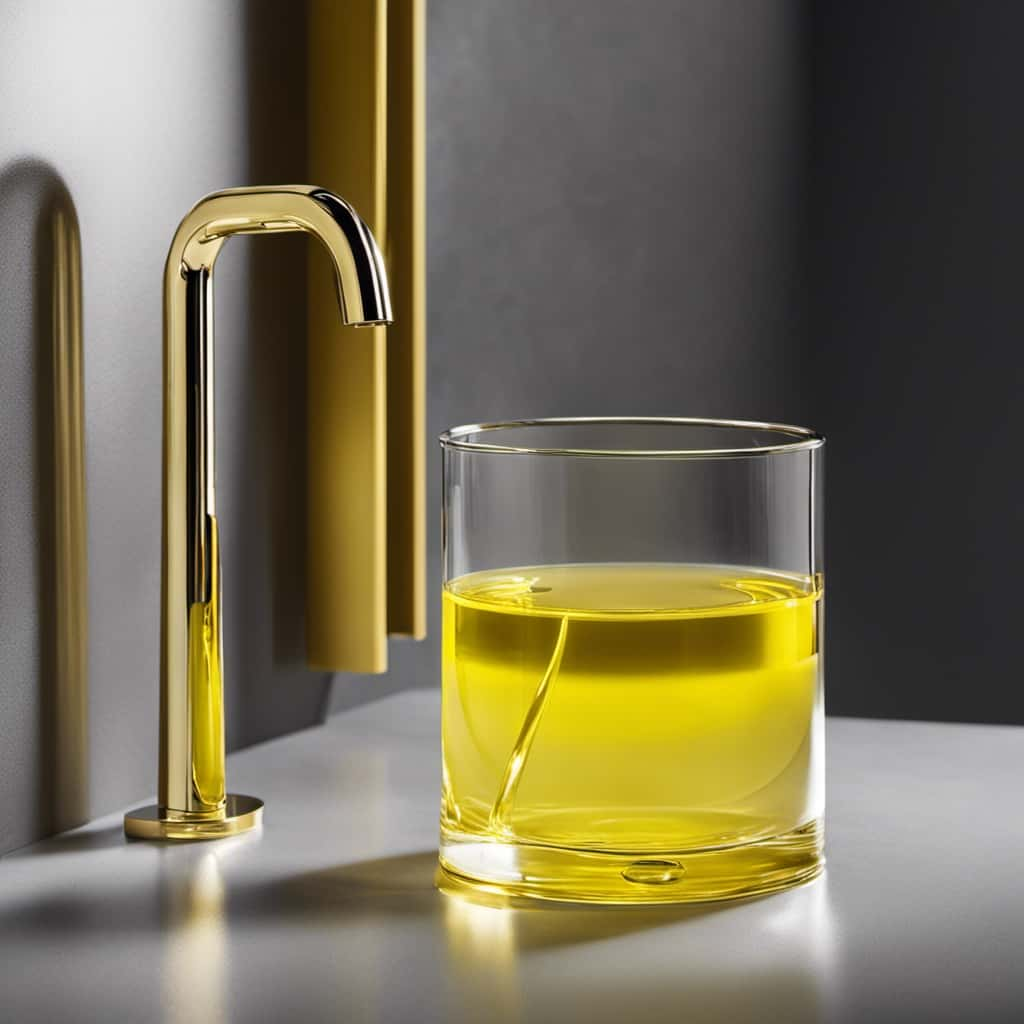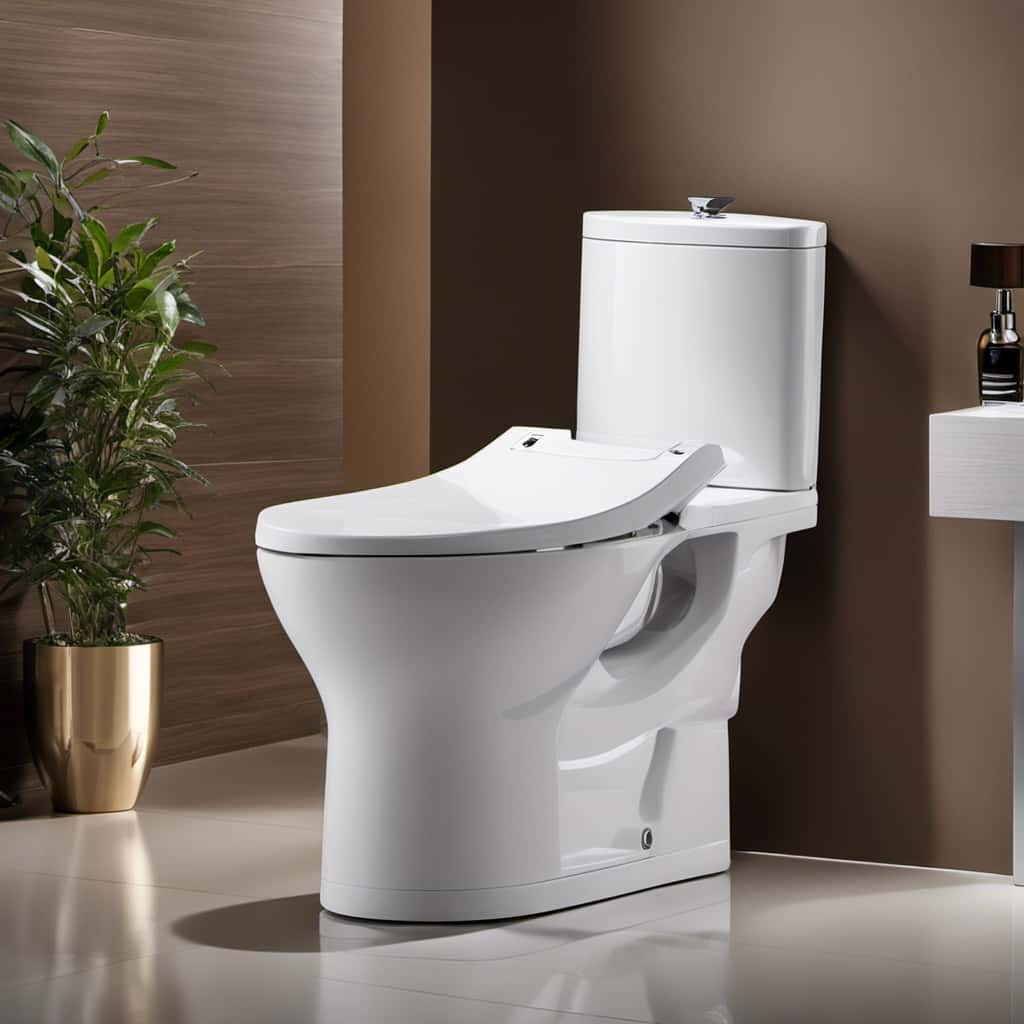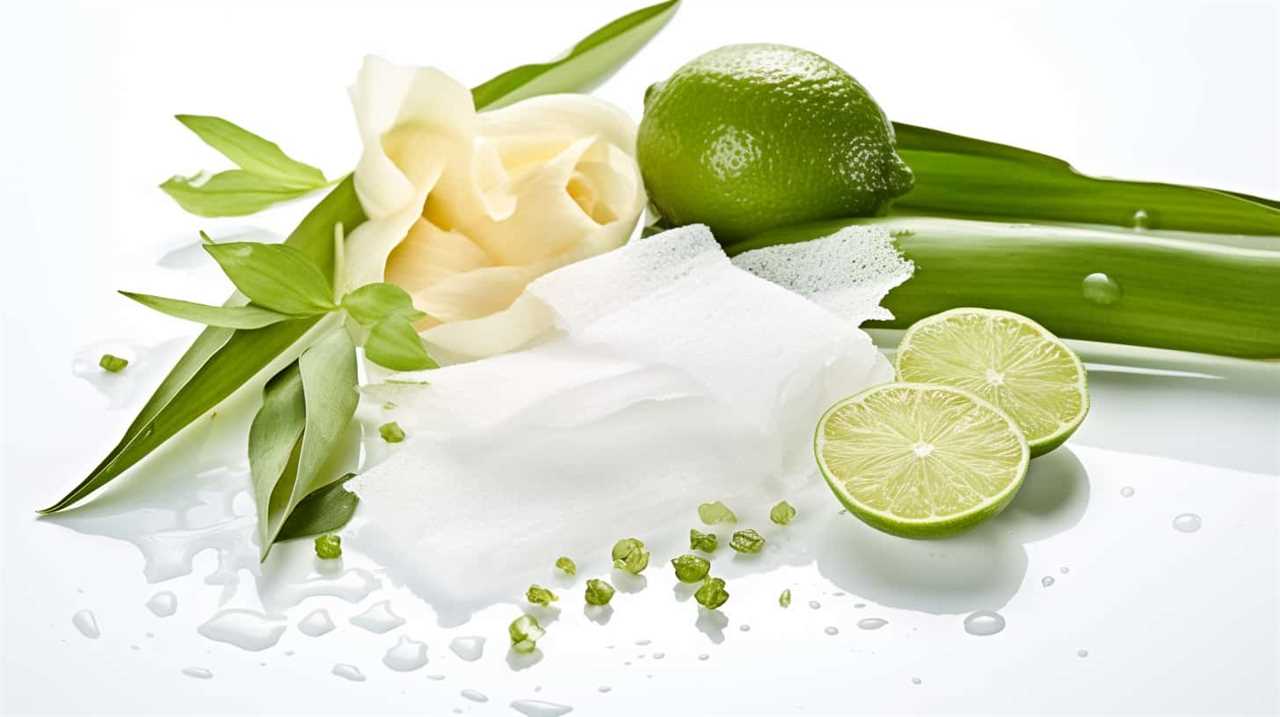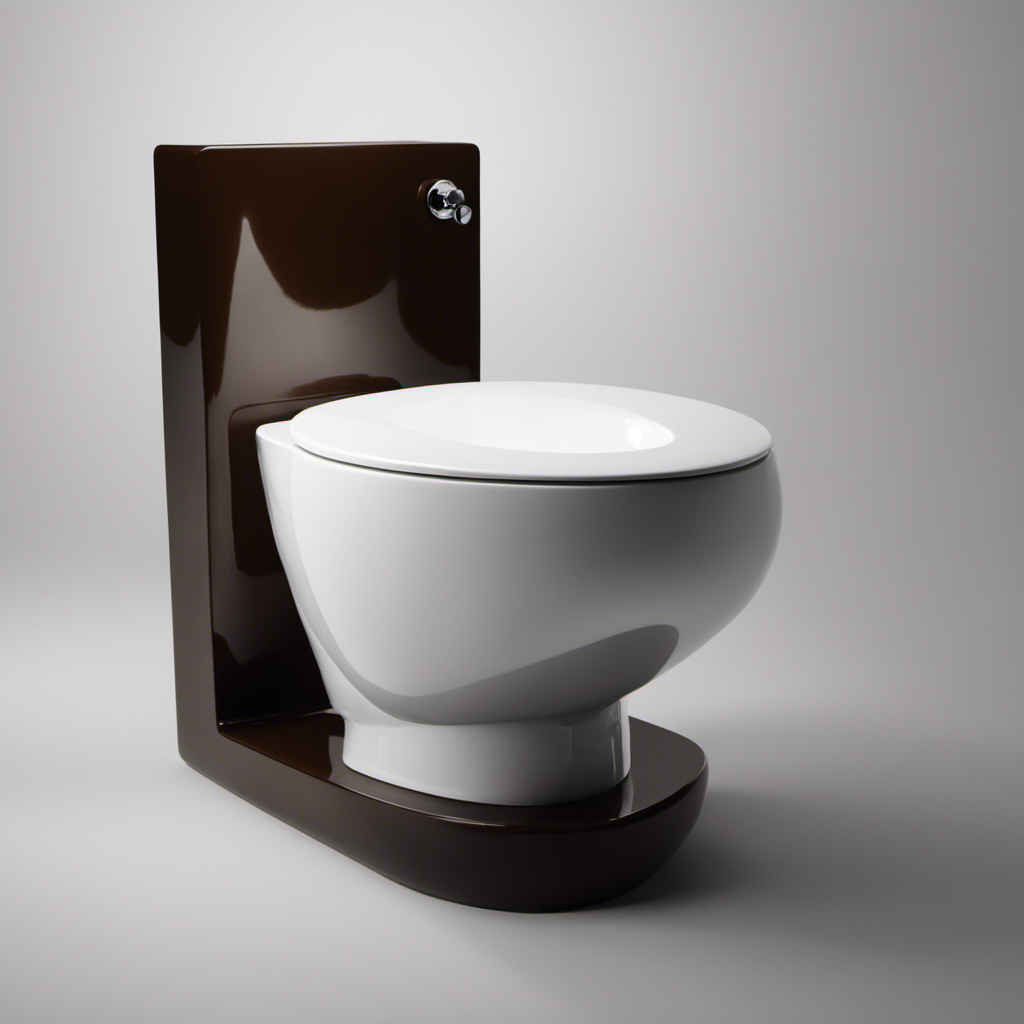Attention, dear readers, let us embark on a journey of septic tank wisdom.
Our quest today delves into the realm of flushing, specifically what not to send down the pipes.
As seekers of mastery, we must be mindful of our actions, for the choices we make can impact the delicate balance of our septic systems.
From non-biodegradable materials to prescription medications, we shall unveil the secrets of maintaining a healthy septic tank.
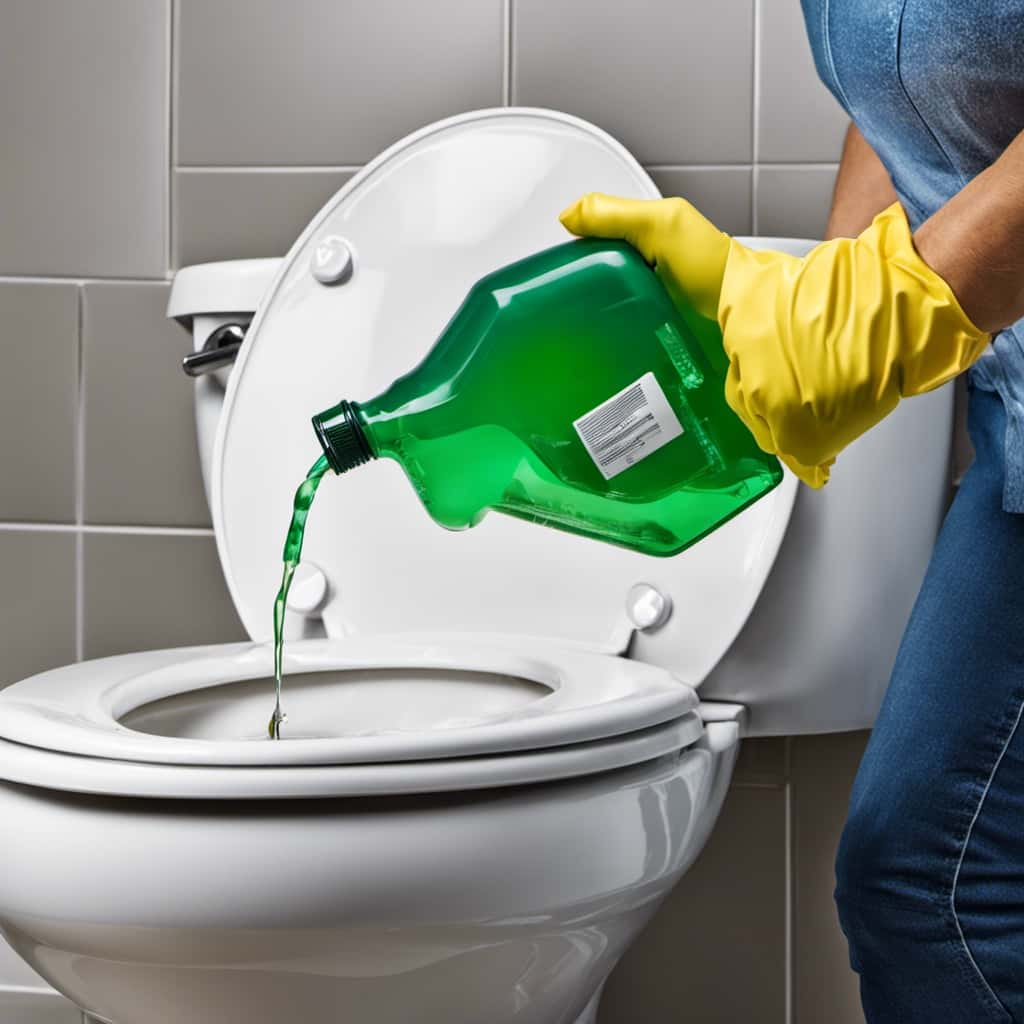
So gather round, fellow learners, and let us discover the forbidden flushables.
Key Takeaways
- Flushing non-biodegradable materials can cause clogs and blockages in the septic tank.
- Flushing chemicals and harsh cleaning products can disrupt the bacteria balance in the septic system.
- Pouring grease, oil, and fat down the drain can cause septic pipe clogs and backups.
- Flushing prescription medications and feminine hygiene products can contaminate water sources and harm aquatic life.
Non-Biodegradable Materials
We should avoid flushing non-biodegradable materials down the toilet when we have a septic tank. Non-biodegradable materials, such as plastic waste, have a significant environmental impact. When these materials enter the septic tank, they can cause clogs and blockages, leading to costly repairs and maintenance.
Plastic waste doesn’t break down naturally like biodegradable materials, and it can accumulate over time, reducing the septic tank’s efficiency. Additionally, when non-biodegradable materials make their way into the environment, they can cause harm to wildlife and ecosystems.
Microplastics, which are tiny particles of plastic, can be ingested by marine animals, leading to health issues and even death. Therefore, it’s crucial to dispose of non-biodegradable materials properly, such as by recycling or using designated waste bins, to minimize their negative impact on the environment.
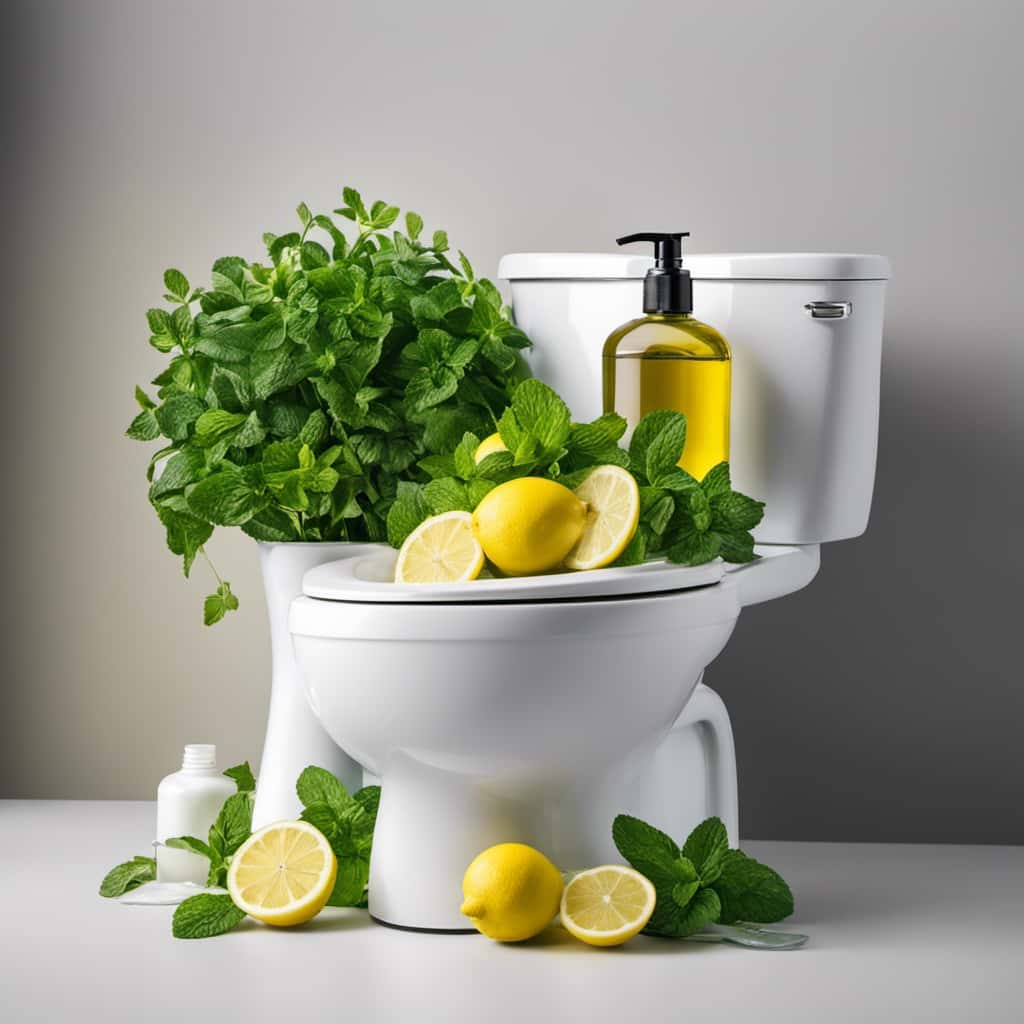
Chemicals and Harsh Cleaning Products
To avoid damaging your septic tank and harming the environment, it’s important to refrain from flushing chemicals and harsh cleaning products down the toilet. These substances can disrupt the delicate balance of bacteria in your septic system, leading to issues such as clogs, leaks, and even complete system failure.
Furthermore, the environmental impact of these chemicals can be significant. When flushed, they can contaminate groundwater and nearby bodies of water, harming aquatic life and ecosystems.
Instead of using harsh cleaning products, consider using environmentally friendly alternatives. Many natural and biodegradable cleaners are available on the market today, which are just as effective as their chemical counterparts. For example, vinegar, baking soda, and lemon juice can be used to clean various surfaces and eliminate odors.
Additionally, using enzyme-based cleaners can help maintain a healthy septic system by promoting the growth of beneficial bacteria. By making these simple changes, you can protect your septic tank and contribute to a healthier environment.
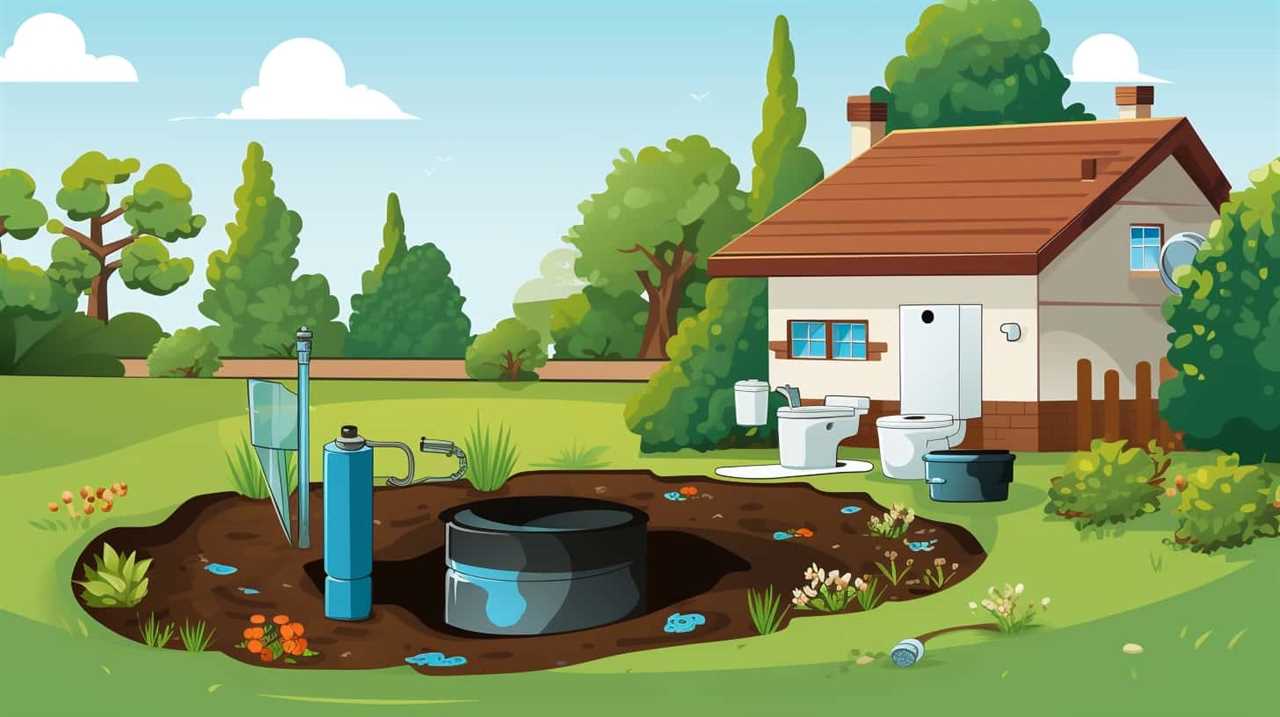
Grease, Oil, and Fat
Pouring grease, oil, and fat down the drain is a common mistake that can cause serious problems for your septic tank. When it comes to cooking waste, it’s important to remember that these substances should never be disposed of in your septic system. Here are five reasons why:
- Grease, oil, and fat can solidify and clog your septic pipes, leading to backups and costly repairs.
- These substances create a layer of scum on the surface of the septic tank, hindering the natural breakdown of sewage sludge.
- The accumulation of grease, oil, and fat in the septic tank can disrupt the balance of beneficial bacteria, reducing its effectiveness in treating wastewater.
- Over time, the presence of these substances can cause unpleasant odors to emanate from your septic system.
- Grease, oil, and fat can also make their way into the drain field, clogging the soil and preventing proper wastewater absorption.
To maintain the health and functionality of your septic tank, it’s crucial to dispose of cooking waste properly and avoid pouring grease, oil, and fat down the drain.
Prescription Medications
After discussing the importance of not pouring grease, oil, and fat down the drain, it is now crucial to address the issue of prescription medications and their impact on septic tanks. Proper disposal of prescription medications is essential to prevent harmful substances from entering the environment and affecting septic tank systems. Flushing these medications down the toilet can have serious environmental consequences, as they can contaminate water sources and harm aquatic life. To help you understand the environmental impact of improper medication disposal, here is a table highlighting the potential risks:
| Medication | Environmental Impact |
|---|---|
| Antibiotics | Disrupt natural microbial balance |
| Hormones | Affect reproductive systems of aquatic organisms |
| Painkillers | Harm aquatic organisms |
| Antidepressants | Disrupt behavior of aquatic organisms |
| Chemotherapy drugs | Toxic to aquatic life |
To properly dispose of prescription medications, contact your local pharmacy or healthcare provider to inquire about take-back programs or follow specific instructions for disposal. By doing so, you can help protect the environment and preserve the health of your septic tank system.

Feminine Hygiene Products
Feminine hygiene products shouldn’t be flushed if you have a septic tank. Flushing these products can lead to clogs and blockages in your septic system, causing costly repairs and potential environmental damage. It’s important to properly dispose of these products to avoid these issues.
Here are some disposal methods to consider:
- Wrap the used product in toilet paper and place it in a designated trash bin.
- Use biodegradable and compostable feminine hygiene products that can be safely disposed of in a compost pile.
- Utilize special disposal bags designed for feminine hygiene products that can be thrown away in regular trash bins.
- Consider using reusable menstrual products, such as menstrual cups or cloth pads, which can be washed and reused, reducing waste and environmental impact.
- Educate others about the importance of proper disposal methods to help protect our environment and septic systems.
Frequently Asked Questions
Can I Flush Paper Towels or Tissues Down the Toilet if I Have a Septic Tank?
We shouldn’t flush paper towels or tissues down the toilet if we have a septic tank. Flushing wipes or non-biodegradable items can cause clogs, damage the septic system, and lead to costly repairs.
Are There Any Chemicals Found in Common Household Cleaning Products That Can Harm My Septic Tank?
Chemicals found in common household cleaning products can indeed harm our septic tank. It is essential to avoid flushing these harmful substances as they can disrupt the balance of bacteria, leading to system failure.
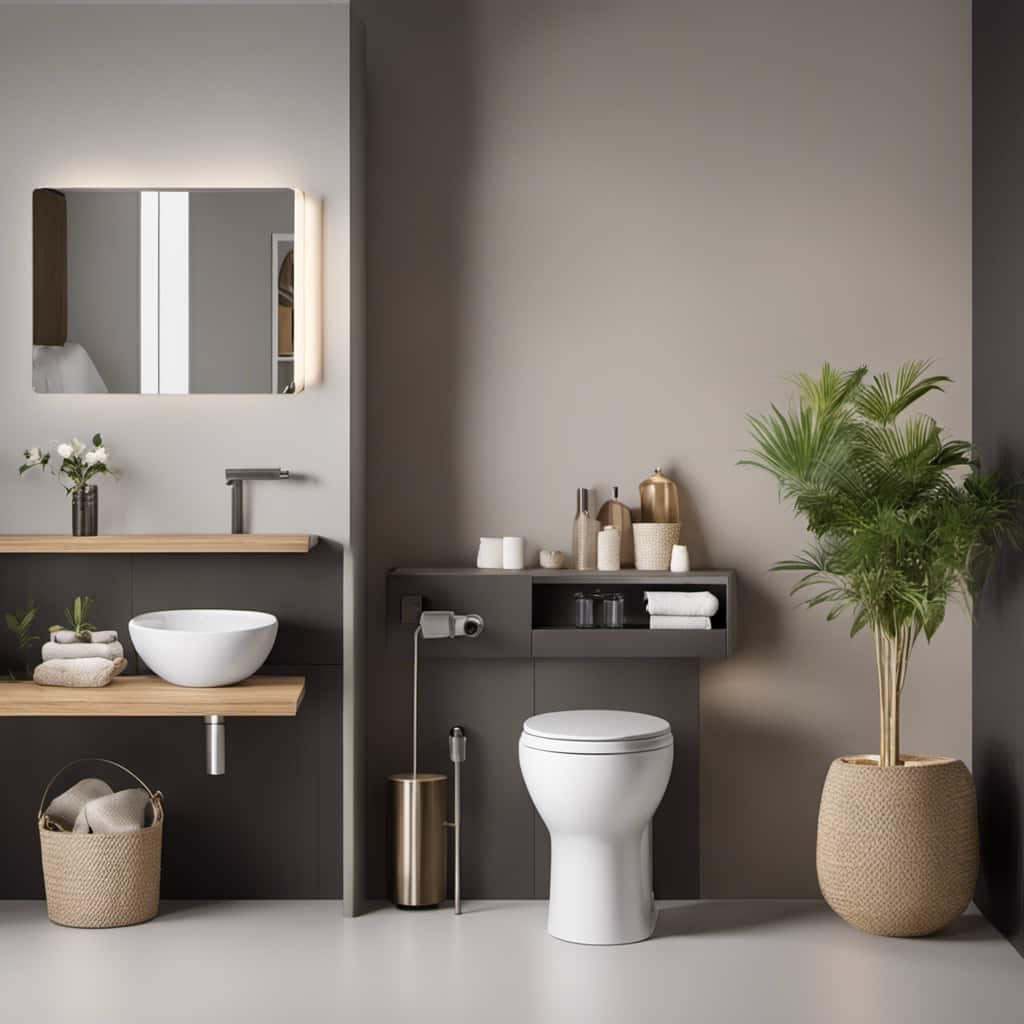
Can Small Amounts of Cooking Oil or Grease Be Flushed Down the Drain Without Causing Any Issues for My Septic Tank?
Yes, small amounts of cooking oil or grease should not be flushed down the drain as they can cause issues for our septic tank. Proper cooking oil disposal is essential for effective septic tank maintenance.
How Should I Dispose of Expired or Unused Prescription Medications if I Have a Septic Tank?
When it comes to the proper disposal of prescription medications, it is important to consider the impact on our septic tank. There are specific disposal methods for expired medications that should be followed to ensure the safety of our septic system.
Can I Safely Flush Tampons or Sanitary Pads Down the Toilet if I Have a Septic Tank?
Can we safely flush tampons or sanitary pads down the toilet if we have a septic tank? It is crucial to remember that flushing these items can lead to clogs and damage the septic system.
Conclusion
In conclusion, it’s crucial to be mindful of what we flush down our toilets if we’ve a septic tank.

Non-biodegradable materials such as plastics and wipes can clog the system and lead to costly repairs.
Harsh chemicals and cleaning products can disrupt the balance of bacteria in the tank, affecting its ability to break down waste.
Grease, oil, and fat can solidify and block the pipes, causing backups.
Additionally, prescription medications and feminine hygiene products should never be flushed, as they can contaminate groundwater.
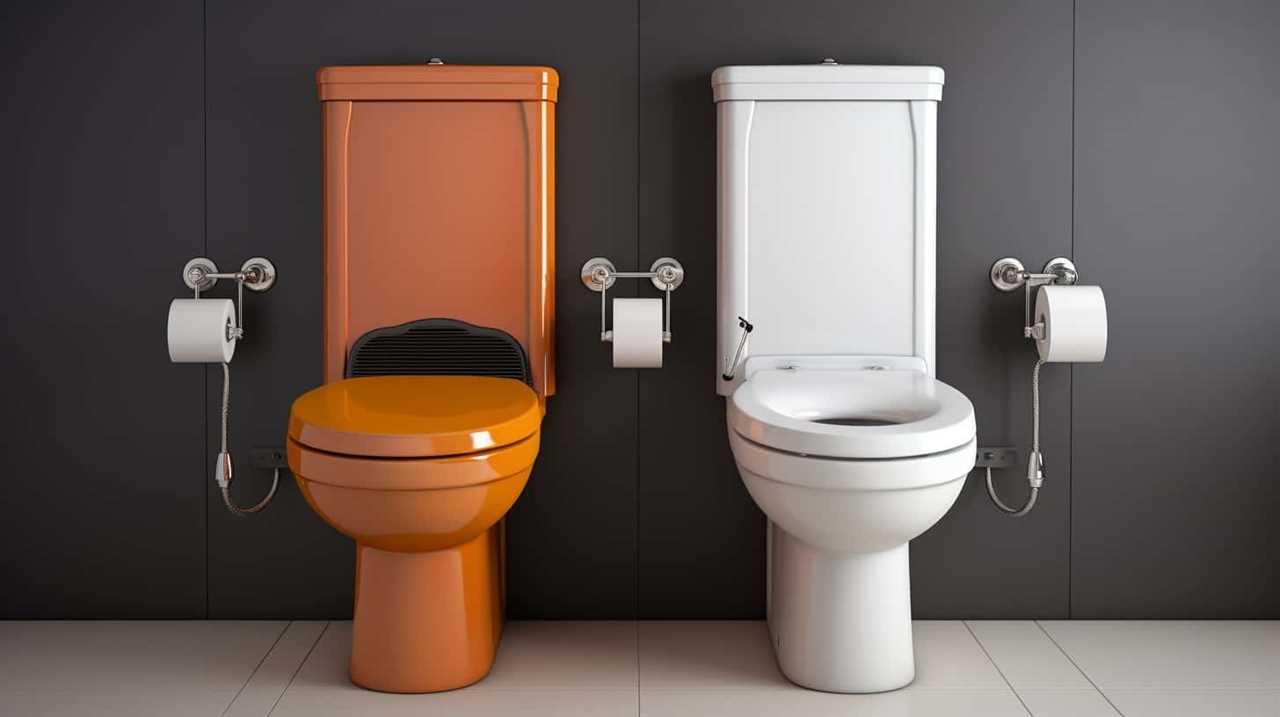
Let’s remember to protect our septic tanks and the environment by only flushing biodegradable waste.

